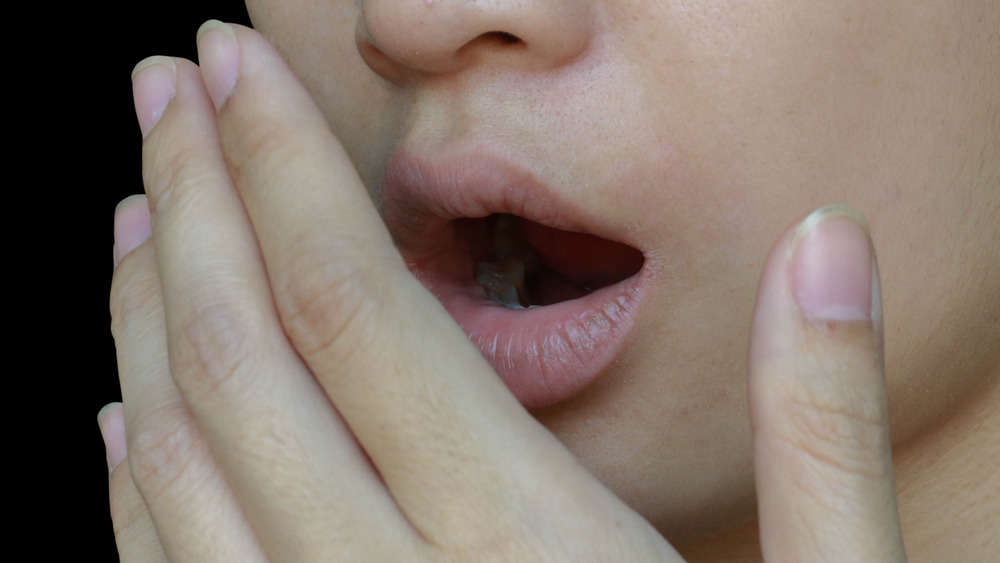The Real Reason You're Always Burping
Though it can sometimes be embarrassing, burping, or belching, is a totally normal and natural bodily function. Everyone passes gas and the need to do so is more common than you may think. In fact, the Cleveland Clinic reports that most people, on average, pass gas about 14 to 23 times a day, either through burping or flatulence.
Common causes of burping include swallowing air while eating, drinking, or chewing gum, consuming carbonated beverages, and smoking (via Livestrong).
Sometimes, a health condition can be the culprit. Acid reflux, gastrointestinal reflux disease (GERD), gastritis, and aerophagia, or swallowing air as a nervous habit, can all cause someone to belch (via Healthline).
If you burp frequently and it doesn't bother you, there is nothing to worry about. But if it does or your belches are accompanied by other symptoms, you may have an underlying condition and there are steps you can take to treat chronic gas.
What causes excessive burping?
How often a person burps will vary depending on the individual. However, if you notice you're belching more frequently than usual, you may have a medical condition that warrants a consultation with your doctor.
Burping, along with the chest pain and heartburn that comes with acid reflux or GERD, may be eased with over-the-counter antacids, H-2 receptor blockers, or proton-pump inhibitors.
Some people with these conditions mistakenly believe that swallowing air and releasing it will relieve symptoms. However, this actually leads to more belching and discomfort. An extreme example of this is Meganblase syndrome, which is characterized by severe air swallowing and leads to chronic burping. People with this syndrome get a large bubble of gas in their stomachs after heavy meals, which can lead to fullness and shortness of breath that can feel like a heart attack. Behavioral changes can often correct Meganblase syndrome.
Excessive burping can also be a symptom of a Helicobacter pylori (H. pylori) bacterial infection. While this bacteria is present in much of the world's population, most people do not become ill from it. In addition to frequent gas, symptoms include nausea, bloating, abdominal pain, loss of appetite, and unintentional weight loss. H. pylori can typically be treated with a round of antibiotics, which should ease symptoms, including excess belching.
Treating excessive burping
How you treat frequent burping depends very much on the cause. If you have an underlying health condition that's causing chronic belching, treating that condition should take care of the excess gas.
Other steps you can take include eating and drinking slowly, avoiding carbonated beverages like soda and beer, skipping gum and hard candy, and not smoking. If you wear dentures, check their fit, as ill-fitting dentures can cause you to swallow excess air while eating and drinking (via Mayo Clinic).
You should also avoid drinking with a straw, talking while eating, and eating while stressed. A short walk or light exercise after meals may also help with gas.
While in most cases, excessive belching is not serious, if it is accompanied by a high fever, a distended abdomen, and/or blood in your stool, you should talk to your doctor right away (via Harvard Health Publishing).



